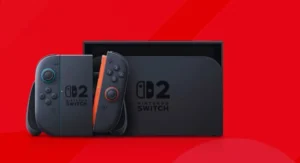10 Things to Check When Selecting a VPN
By TOI Desk
October 7, 2023
Update on : October 7, 2023

Choosing a virtual private network (VPN) is an important decision these days for any tech user who values privacy and security online. With hundreds of VPN providers out there claiming to be the best, it can get confusing knowing which one to pick for your needs. To cut through the noise, I have put together this guide covering the ten most critical factors to check when selecting a VPN service. From encryption strength and server speed to customer support and value, these VPN vetting tips will help you identify the ideal service to keep your browsing secure and private.
1. Protocols and Encryption
The VPN protocol determines how your traffic is routed and encrypted between your device and the VPN server. Look for VPN software providers that offer modern protocols like WireGuard, OpenVPN, and IKEv2, which provide faster speeds and better security than older protocols. Make sure the encryption is strong, like AES-256-bit encryption, to keep your data secure.
2. Server Network and Locations
A wider server network across more locations allows you to bypass geo-restrictions and find faster speeds. Check that the VPN has servers in your desired locations and offers good coverage across North America, Europe, and Asia. More servers also means less congested connections during peak times.
3. Internet Speeds
VPN encryption can reduce your internet speeds, so it’s important to choose a fast VPN. The fastest VPNs can provide 70-80% of your normal speeds or higher. Look for providers that offer unlimited bandwidth with high-speed servers optimized for streaming, gaming, and torrenting.
4. Logging Policies
To protect your privacy, you want a strict no-logging VPN that does not record your online activity. VPNs based outside surveillance jurisdictions like the “Five Eyes” alliance are preferable. Independent audits can verify no-logs policies. Avoid “free” VPNs more likely to log and sell data.
5. Device Support
The best VPN services allow simultaneous connections on 5-7 devices – useful for securing all your devices. There should be native apps for Windows, Mac, iOS, Android, and Linux. Browser extensions for Chrome and Firefox are also beneficial.
6. Extra Features
Additional features like an internet kill switch, split tunneling, and IPv6 leak protection further enhance security. Obfsucation helps bypass VPN blocks in restrictive regions. Ad and malware blocking provide extra privacy perks.
7. Reliable Customer Support
Look for 24/7 live chat support and a comprehensive support site with setup guides and troubleshooting. This ensures help is available if you ever have problems using the VPN. Support via email and social media are also useful.
8. Value for Money
While free VPNs seem appealing, paid services invest more in their infrastructure and provide better speeds, features, and support. Aim for reputable providers that offer affordable plans around $2-10 per month. Consider 1-year or longer subscriptions for the best deals.
9. Third-Party Audits
Independent audits by firms like PricewaterhouseCoopers validate the VPN’s policies and claims around security and logging. Audited VPNs provide greater accountability and transparency for users.
10. Reviews
Checking VPN reviews on reputable tech sites can reveal potential issues with speeds, apps, and support. However, focus on in-depth reviews over basic ratings. Avoid reviews on the VPN’s own site, which are biased.
Final Words
Choosing the right VPN involves evaluating many factors – from encryption protocols to value for money. This checklist will steer you towards the most secure, fast, and reliable VPN for accessing the internet privately. Taking the time to research VPN providers ensures you select one that meets your specific needs as a tech enthusiast.
Read more: 10 Things to Check When Selecting a VPN















